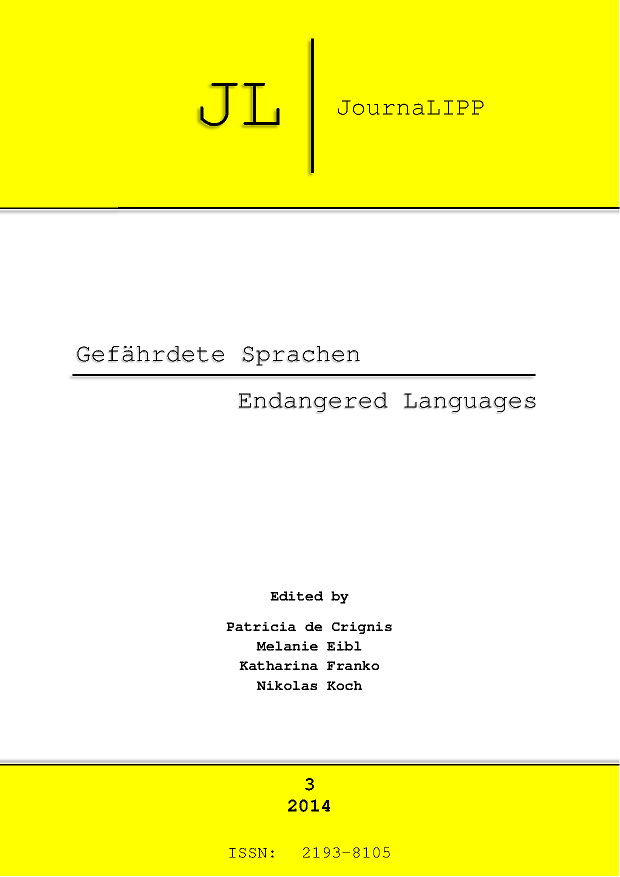Abstract
The research project ELDIA (European Language Diversity for All), funded by the 7th
Framework Programme of the European Union from March 2010 till September 2013,
set out to examine the state of multilingualism in today’s Europe. The project, working
on a sample of Finno-Ugric minorities from the Barents Sea to Slovenia, began with a
context analysis (desk research) and proceeded through fieldwork-based case studies
(questionnaire surveys and interviews) as well as interconnected media-sociological
and law analyses. One of the main results was the EuLaViBar (European Language
Vitality Barometer), a tool for assessing the state of language maintenance and
identifying the points where special support measures are needed. In this paper, some
central results of the project, with respect to maintaining language diversity in Europe,
are discussed.

